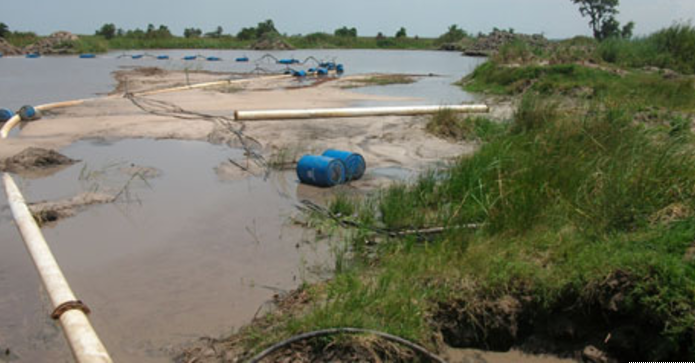At the close of last year, Uganda’s media space was dominated by the numerous Chinese and local companies mining sand from Lwera wetland over flouting environmental regulations.
Many were alarmed by their activities that are detrimental to the environment which also attracted the attention of the Green Climate Fund is a fund within the framework of the UNFCCC founded as a mechanism to assist developing countries in adaptation and mitigation practices to counter climate change.
Lake Victoria is an all important resource to the country and beyond. According to the Uganda Bureau of Statistics report 2015, Uganda harvested 461 million tones of fish in her water bodies, the biggest per cent being from Lake Victoria.
The destruction of the Lake Victoria is not a local thing though as it affects an inter-state issue as an estimated 30 million people depend on the 68,800 square kilometer lake for survival directly but the number swells with some countries using it to generate hydro power and irrigation, among other purposes.
This week, GCF announced that the Ugandan government was receiving $24.14 million from o support wetland preservation and early warning systems for over 4.8 million people in southwestern and eastern Uganda, wrote Dicta Asiimwe of The EastAfrican.
This is the first tranche of monies Uganda will get from the GCF, which was established to persuade countries to sign the Paris Agreement that aims at keeping global warming below two degrees Celsius.
Uganda will supplement the $24.1 million with an extra $18.1 million, while the United Nations Development Programme will contribute $2 million — bringing the total project amount to $44.3 million.
UNDP will receive the money on behalf of Uganda because the government has not acquired accreditation that would give it direct access to the GCF funds.
According to Onesimus Muhwezi, team leader of energy and environment at UNDP, the money will buy weather forecast equipment to supplement another set of 20, an instrument that UNPD bought and installed in 2016.
Data from the Ministry of Water and Environment shows that so far, Uganda has lost 30 per cent of its two million hectares of wetland. This puts at risk the four million people living around the wetlands.
Currently, environment protection bodies like Nema and districts among others are battling an uphill task to protect national resources as both Ugandans and foreign nationals deplete the resources with little care for the next generations.
Many have built in or reclaimed wetlands for agriculture, never mind their crucial uses like contributing to water purification, de-nitrification and detoxification, waste water treatment, and provision of food like fish.
Such uses of wetlands mean that destroying them is self-destruction but the little gains from them blindfolds the encroachers, experts say.











